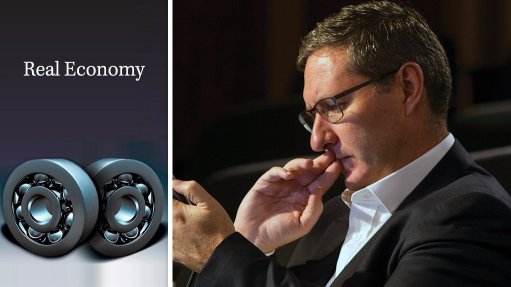
Government has finally started to push back against those who blame renewable energy and independent power producers (IPPs) for the current woes at Eskom.
Energy Minister Jeff Radebe moved recently to put the record straight on the effect, or lack thereof, that IPPs have on Eskom’s finances. He was responding to a persistent, yet false, social-media narrative that Eskom’s financial crisis comes down to the fact that it is forced to pay R2.22/kWh for electricity produced by the IPPs, while it is allowed to charge only R0.89/kWh through the tariff.
Firstly, he went to some lengths to outline the legal and policy frameworks that guided the procurement, by government, of electricity from IPPs. He also explained that Eskom, which has been designated as the country’s single buyer of IPP power, then buys the electricity by way of 20-year power purchase agreements (PPA). Electricity consumers, through the tariff-setting process, pay for the kilowatt hours bought by Eskom.
The process is strictly regulated, with the National Energy Regulator of South Africa required to issue an approval for Eskom to enter into the PPAs and to confirm in writing that the utility will be allowed the full associated cost under the cost recovery mechanism. “The assertion, therefore, that Eskom incurs losses as a result of the IPP programme is without foundation, misleading and false. Since 2013, Eskom has not incurred a cent in buying electricity from the IPPs which [it has] not been able to recover through the tariff allowance.”
Radebe also responded to a persistent suggestion that his familial relationship with business personality Patrice Motsepe – who is his brother-in-law and a recent investor in the IPP programme – underpinned his 2018 decision to end a three-year impasse over the signing, by Eskom, of contracts with IPP projects legally procured in 2015. Motsepe, who is also related, by marriage, to President Cyril Ramaphosa, also dismissed the allegation levelled against African Rainbow Energy & Power (AREP), in which he is a shareholder, as “ridiculous”. He, nevertheless, acknowledged that AREP had a serious perception problem, owing to his relationships with Ramaphosa and Radebe.
The Minister said Eskom’s refusal to enter into new PPAs contradicted government policy and his decision to finalise the contracts was designed to “correct” the situation. He also highlighted that, in a short eight-year period, government’s IPP programme had attracted both R209.4-billion in committed private-sector investment and international acclaim. The plants were also helping to alleviate load-shedding and helping South Africa to diversify its electricity system, which is currently dominated by coal.
“While I acknowledge the programme is not perfect and can be improved in specific areas, why do we not embrace a programme that has done so much for the country and has received international acknowledgement?” Radebe asked.
Why not indeed!